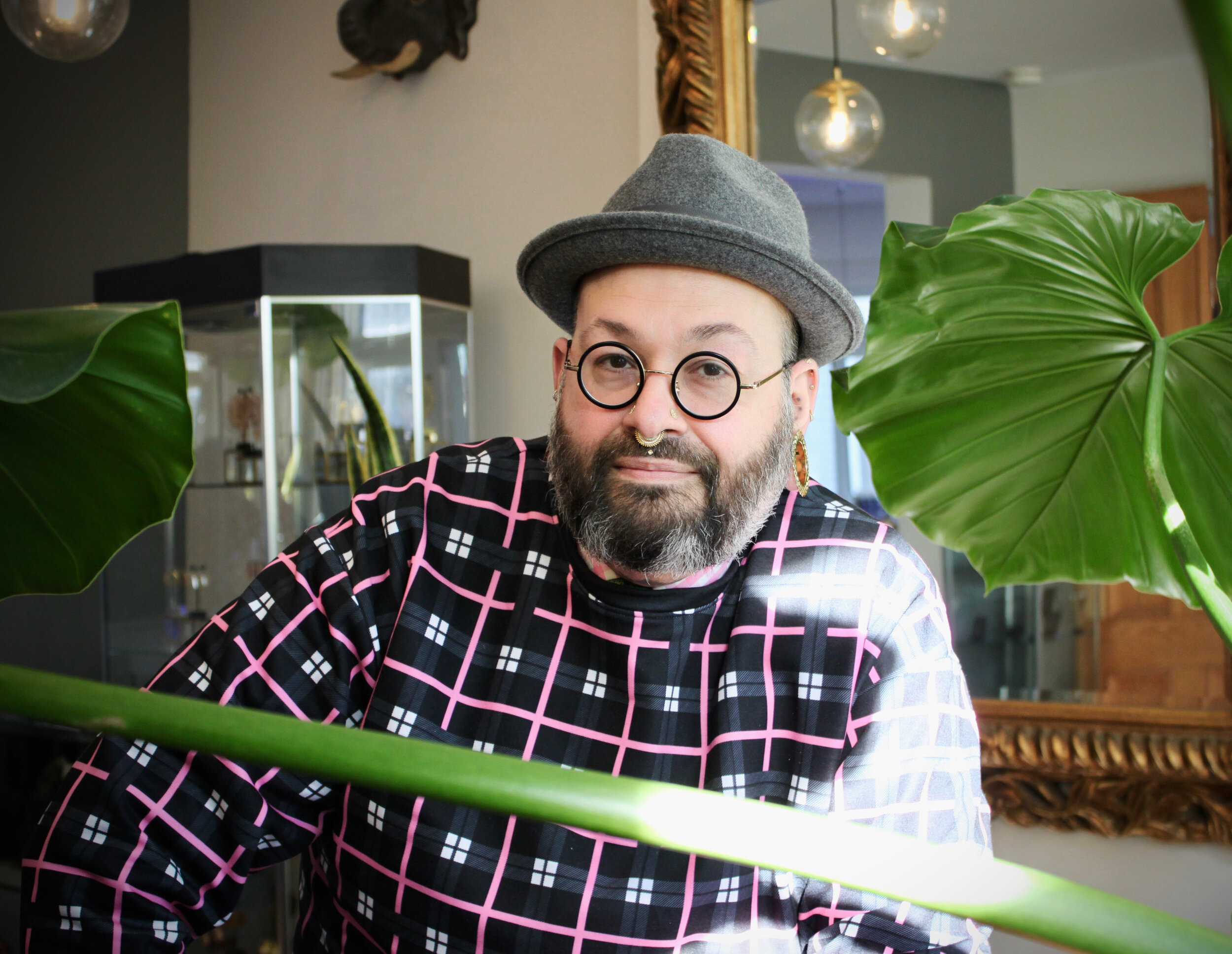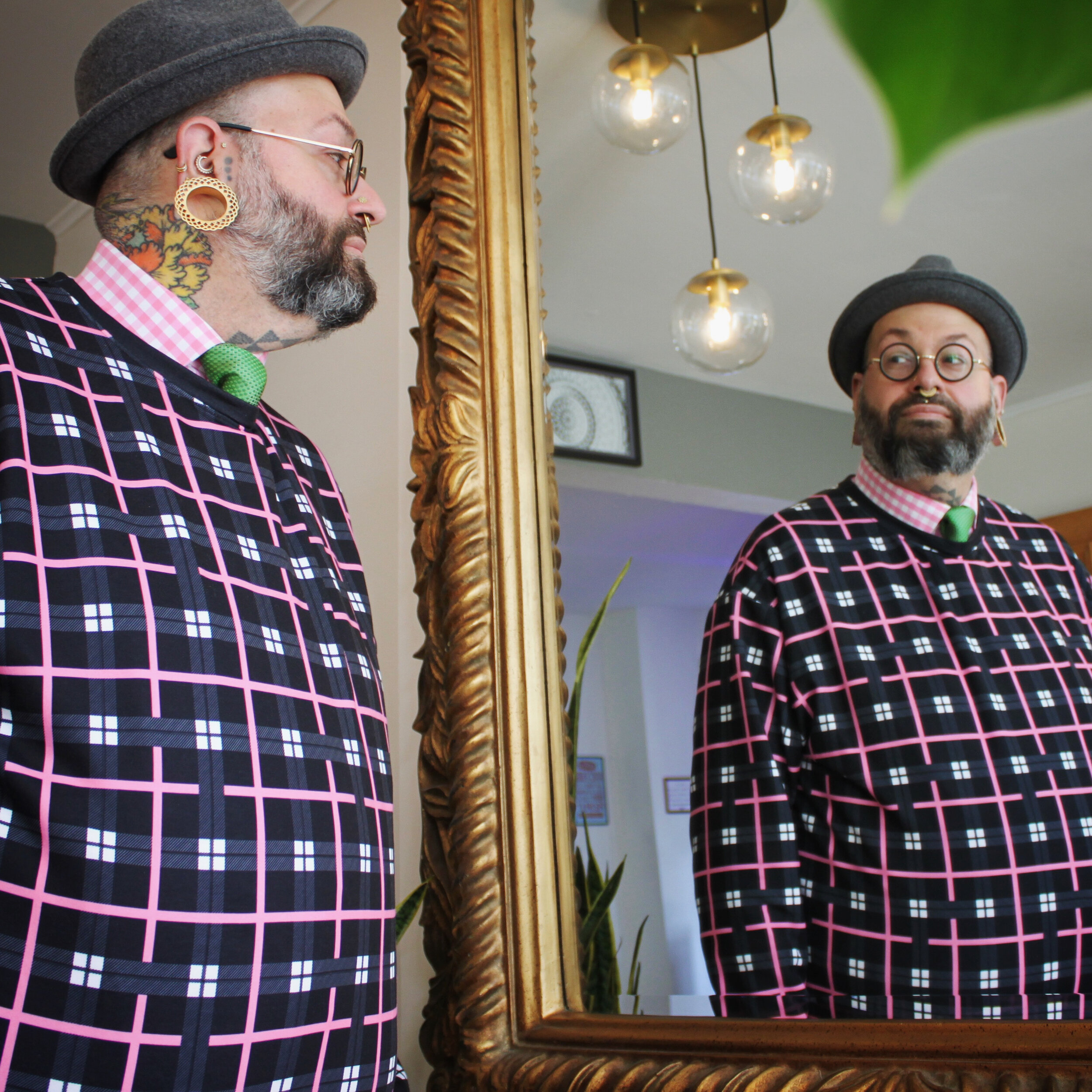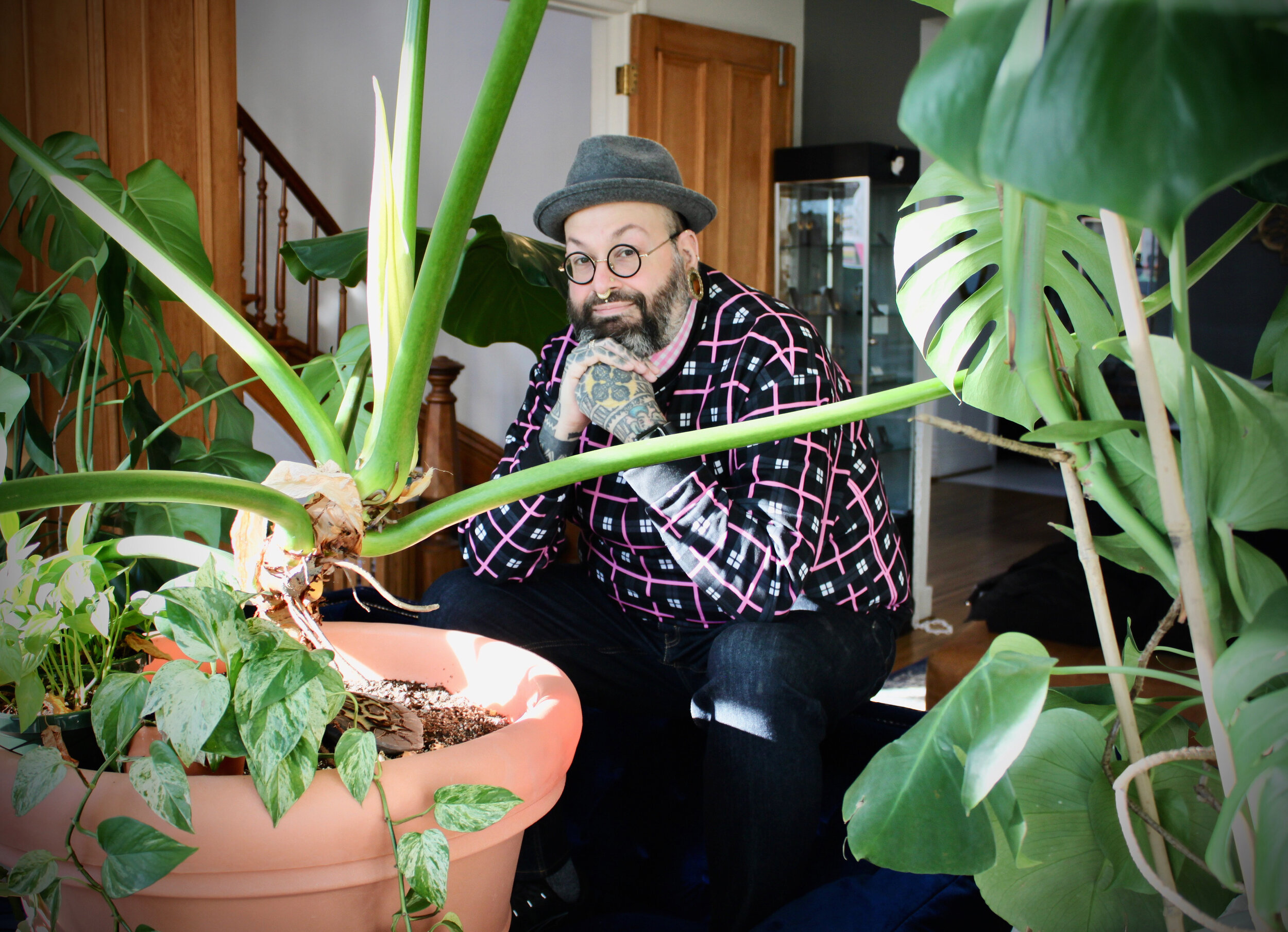Nick Dorje
“I've been free from addiction for 21 years, and have recently found myself completely sober in the last six months or so — the first time in my adult life. For me, recovery meant believing in myself and accepting life and love the way it came and not trying to avoid it or manipulate it to be less scary for me.”
NAMI: Have you ever had any mental health struggles? Do you live with a diagnosis? What has your experience been?
ND: I am diagnosed with generalized anxiety disorder. I often refer to it as the fear of the unknown. At its best, it shows up as a feeling of nervousness and slight unease. At worst, it turns into a full-on, room spinning, heart racing, stomach churning panic attack. Most often, it shows up as intense rumination and worry, often about things I have little to no control over. The most intense ones often happen in the middle of the night. Some days I barely notice it, and some days I'm acutely aware of it — like the proverbial elephant in the room. I never know when it’s gonna hit or how bad it’s gonna be. Anxiety is sneaky like that.
NAMI: How have you healed, recovered, and grown from your experiences?
ND: This is something I’ve dealt with my entire life, and it doesn't seem like it will ever go away, so at this point healing feels like management more than anything else.
NAMI: What does recovery mean to you?
ND: I've been free from addiction for 21 years, and have recently found myself completely sober in the last six months or so — the first time in my adult life. For me, recovery meant believing in myself and accepting life and love the way it came and not trying to avoid it or manipulate it to be less scary for me.
NAMI: During the pandemic, many beloved small businesses had to close their doors for a long period of time, Dorje Adornments being one of them. How has that affected your mental health as a small business owner?
ND: In early March, my husband and I made the difficult decision to let our 18-month-old puppy, Benny, go. He was a rescue, and came to us terminally ill. During his short time with us, we watched his health deteriorate, and watched him struggle more and more. We decided to do the compassionate thing. A week later, we closed the studio due to the pandemic, and the world turned upside down. I plunged pretty deeply into a mental health and identity crisis. I felt I was no longer “Nick Dorje.” I felt I was no longer “Ben’s dad.” It was almost like a forced dissolution of my ego. Or maybe a forced disillusion. I dove head first into grief. I worried about the future of the business & my employees. Dorje was my employees’ only job and their only source of income. The unemployment website was flooded, and it took some of them weeks to finally get on. It was a very dark time. In the end, it turned out to be a very good reminder for me to once again accept life the way it came, and more importantly, believe in myself.
NAMI: As a business owner, what is your policy/philosophy on things like mental health days and making Dorje a stigma-free environment?
ND: We are a small crew and talk about our feelings pretty freely. We really are like a family, as cliche as it sounds. We know a good amount about each other's lives and check in on each other regularly. We also checked in on each other during both shutdowns. It feels good to have that support. There's no formal policy, but we have had people in the past “call in” due to various mental health situations. Most recently, I “called in” deciding to go back to bed after a night of repeated panic attacks. I was exhausted from the adrenaline, lack of sleep and the Xanax I had taken around 5 a.m. or so. I'm prescribed xanax to take as needed, but use it sparingly due to its potential for addiction.
NAMI: As a business owner, I imagine things can get overwhelming at times. What forms of self-care do you practice?
ND: I try to keep what I call my “mental health pantry” organized and well-stocked at all times I stock it with food, rest, meditation, self care, and movement. I keep it organized by following a routine, so that I have the most space and best chance to manage anxiety when it inevitably shows up uninvited. A typical day looks like waking up, meditating and then having coffee. I follow this with some sort of movement, usually yoga and then breakfast. Afterwards I clean myself up and go about my day. In the evenings, I eat dinner, relax a bit then do my skin care, meditate, and crawl into bed. Self care looks different everyday, but currently it looks like meditation, yoga, time with my husband and skin care. And food. It almost always looks like food.
NAMI: What keeps you balanced?
ND: Gratitude keeps me balanced. Everyday above ground beats the alternative!



